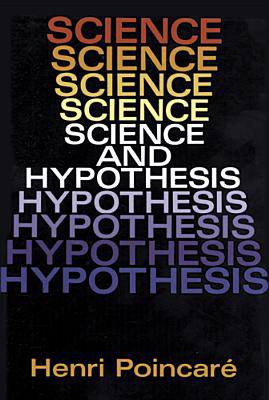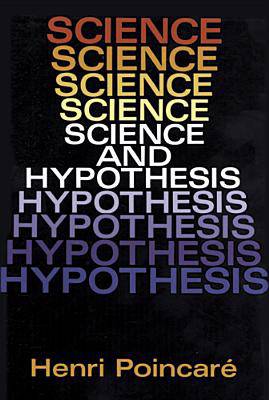
- Afhalen na 1 uur in een winkel met voorraad
- Gratis thuislevering in België vanaf € 30
- Ruim aanbod met 7 miljoen producten
- Afhalen na 1 uur in een winkel met voorraad
- Gratis thuislevering in België vanaf € 30
- Ruim aanbod met 7 miljoen producten
Zoeken
Omschrijving
Here is Poincare's famous discussion of creative psychology as it is revealed in the physical sciences. Explaining how such basic concepts as number and magnitude, space and force were developed, the great French mathematician refutes the skeptical position that modern scientific method and its results are wholly factitious. The places of rigorous logic and intuitive leaps are both established by an analysis of contrasting methods of idea-creation in individuals and in modern scientific traditions. The nature of hypothesis and the role of probability are investigated with all of Poincare's usual fertility of insight.
Partial contents: On the nature of mathematical reasoning. Magnitude and experiment. Space: non-Euclidean geometrics, space and geometry, experiment and geometry. Force: classical mechanics, relative and absolute motion, energy and thermodynamics. Nature: hypotheses in physics, the theories of modern physics, the calculus of probabilities, optics and electricity, electro-dynamics.
"Poincare's was the last man to take practically all mathematics, both pure and applied as his province. Few mathematicians have had the breadth of philosophic vision that Poincare's had, and none is his superior in the gift of clear exposition." Men of Mathematics, Eric Temple Bell, Professor of Mathematics, University of Cambridge"
Partial contents: On the nature of mathematical reasoning. Magnitude and experiment. Space: non-Euclidean geometrics, space and geometry, experiment and geometry. Force: classical mechanics, relative and absolute motion, energy and thermodynamics. Nature: hypotheses in physics, the theories of modern physics, the calculus of probabilities, optics and electricity, electro-dynamics.
"Poincare's was the last man to take practically all mathematics, both pure and applied as his province. Few mathematicians have had the breadth of philosophic vision that Poincare's had, and none is his superior in the gift of clear exposition." Men of Mathematics, Eric Temple Bell, Professor of Mathematics, University of Cambridge"
Specificaties
Betrokkenen
- Auteur(s):
- Uitgeverij:
Inhoud
- Aantal bladzijden:
- 288
- Taal:
- Engels
Eigenschappen
- Productcode (EAN):
- 9780486602219
- Verschijningsdatum:
- 30/11/2011
- Uitvoering:
- Paperback
- Formaat:
- Trade paperback (VS)
- Afmetingen:
- 138 mm x 204 mm
- Gewicht:
- 281 g

Alleen bij Standaard Boekhandel
+ 47 punten op je klantenkaart van Standaard Boekhandel
Beoordelingen
We publiceren alleen reviews die voldoen aan de voorwaarden voor reviews. Bekijk onze voorwaarden voor reviews.











